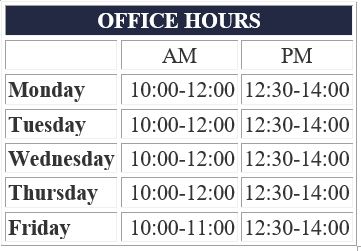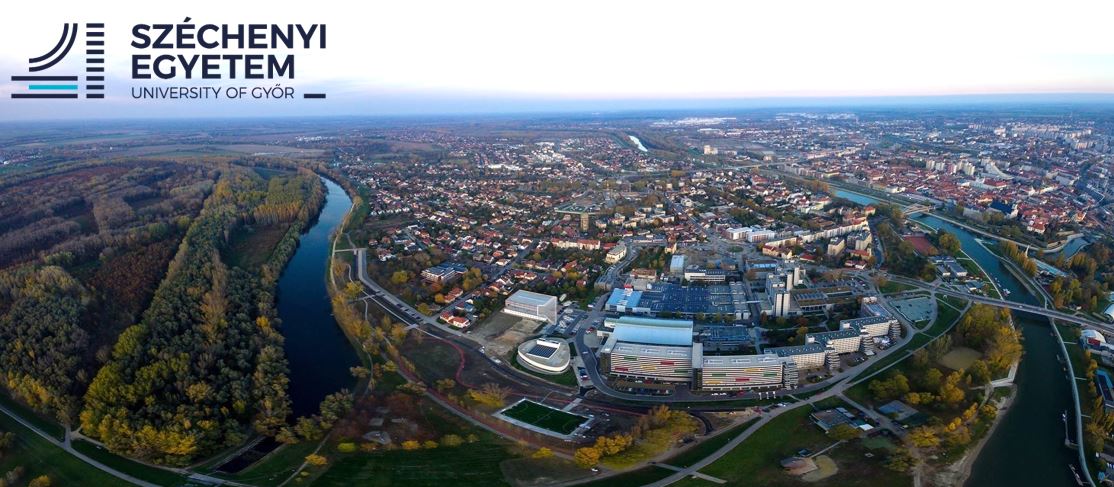EUC - Erasmus Policy Statement
EUC - Erasmus Policy Statement
I. Institution's strategy, objectives, priorities for Erasmus activity, and any other LLP actions
The University has about 12.000 students (full time, part time and distance learning) in 21 BSc, 6 MSc and 5 PhD programmes. Although the outgoing students' number is year by year rising, it is still only 0,62%. Our plan is to raise the figure over the national average (0,77%).
The University has participated in many international programs since 1990. It holds over 50 valid agreements with universities and research centres from 19 countries all over Europe. These contacts include student exchange, and staff visits, teaching activity of foreign professors on short courses as well as inviting guest lecturers to teach foreign languages and joint conferences, intensive programmes, summer schools. Foreign students are welcome in some courses and also for individual programs such as final thesis works or practical placements.
The institutional frame of the international co-operation and co-ordination of the LLP is the following. The Vice-Rector for Education and Research is also the person in charge for the International Relations. He is assisted by the Office of Research and International Relations. There are Erasmus thematic co-ordinators for each field of study, who help in academic and professional cases both students and lecturers in the LLL Programs. The Vice-Rector and the Institutional Erasmus Coordinator together with the thematic coordinators are responsible for the enforcement of the principles and positions of the EUC and the European Policy Statement (EPS) in the everyday practice. The EPS will be available for anybody in both language, Hungarian and English on the web-site of the University.
The Student Association also plays a crucial role in managing the international relations. Two examples of their activities are: the students participating in the mobility programs are selected with the assistance of the Student Association, and from the beginning 2006/2007 academic year a new student's group „EGG-Erasmus Group Győr" acts with various programs and helpdesk for the international students.
Special care is taken of the handicapped students. In 1997 the University built paths, bathrooms, special rooms in the student‘s hostel as well as other facilities for people in wheel chairs and there is available, if necessary a special assistance for the blind students.
Participants in the LLL Programs, like Erasmus will be selected on the basis of study results and performance criteria. The selection of the exchange participants comes off on the basis of achievements, regardless of any discrimination based on race, nationality, ethnicity, religion, age, sex, marital status or physical disability.
Racial or gender discrimination problems have not occurred so far, and the University did not have to tackle such problems. The gender ratio of the students coincides with the overall ratio of Hungary.
II. Mobility Specific measures implemented in the Institution to ensure high quality in academic mobility activities.
The Széchenyi István University has adapted all programmes to the Bologna System. Although we have more than 30 programmes, we continuously make effort to launch new programmes, courses, modules, intensive courses in foreign language and in cooperation with other universities from Europe with the help of LLL Projects.
At present the University offers a number of courses in English. By the courses the University endeavours each year to provide for the foreign students a special opportunity to enlarge their professional skills. Our laboratories are open for students, preparing final thesis or practice and several intensive programs were hosted.
Under the mobility programs the University sends each year over 50 students to the partner universities participants for study program or placement activities and receives about 20 students from all around Europe. The International Office of the university, arm-in-arm with the EGG help both, outgoing and incoming students with the administrative cases, like travelling, accommodation, mentoring. In academic matters, like study plan there is a coordinator in charge at every faculty, who ensures the academic tutoring of the students.
A credit system has been in use at the university since 1996. The condition of the credits' calculation is the same as in the ECTS. It has been decided to prepare the ECTS users' guide in every programme. The guides are available on the web-sites of the university. In its curricula the University commits itself to recognise all credits earned in abroad in the frame of student mobility programs.
The University developed its first quality assurance system in 1996. To check the academic activity of the university, every organisational unit must publish a report on the results attained in the given year. The Committee for the Quality Management of Research and Education monitors the status of the quality of education and research and prepares a publication in which suggests necessary corrections.
III. Quality of students' placement activities
The university has been dealing with student placement for many years. With the help of a PHARE program the "PRACTING" program was launched for the practice oriented training of engineering students with the aim of arranging work placement for the engineering students in Hungary and in abroad. As we were taking part in the LEONARDO Program, we sent each year more than 20 students in the architect course to abroad for placement.
In the frame of a project, supported by the National Office for Research and Technology, the University established two Research Centers in consortium with more 30 industrial firms. The cooperation with these industrial actors could be extended also to the students' placements.
With referring to these experiences and facts, the university welcomes the possibility for student placement in the frame of LLP and is able to guarantee the continuous and successful arranging of placements of a high quality. The lecturers know the co-workers of the business and industrial partners; they can control the establishing of a new cooperation. Our intention is following
- to set up an offer of Hungarian placements for the incoming students, publishing by the partner universities in abroad,
- to seek out new partners in abroad with the help of the departments, taking part in international research projects,
- to cooperate with the partner universities, which are offering work placements for our students.
The practice period, spent in abroad, will be recognised for the students, as long as it was approved before the travel by the Hungarian tutor.
The selection procedure is the same, like it in the study mobility. The university does not make any differences among the exchange participants based on race, nationality, ethnicity, religion, age, sex, marital status or physical disability.











